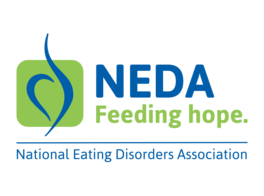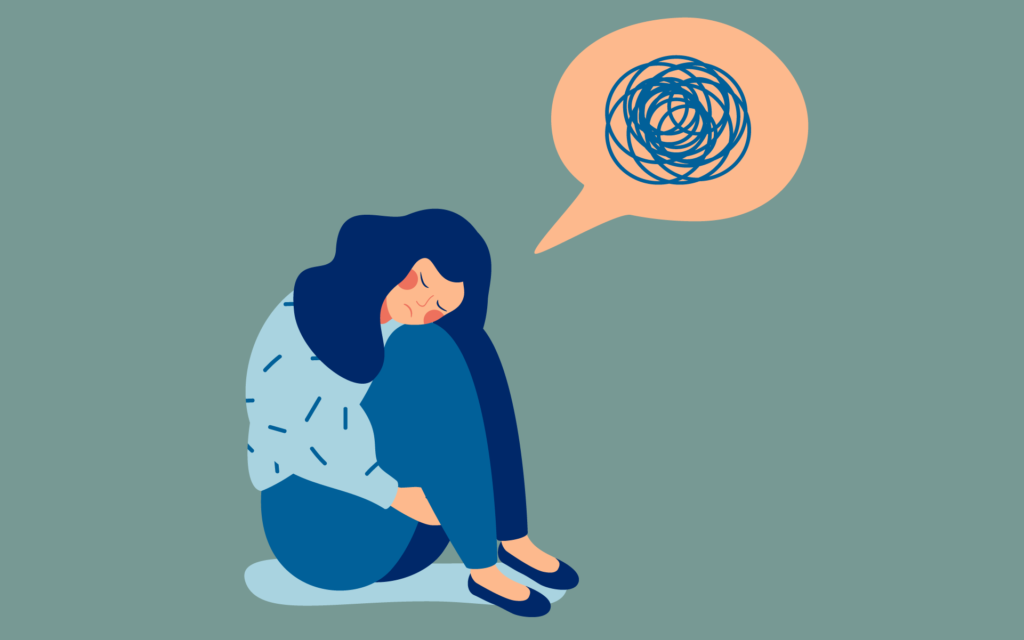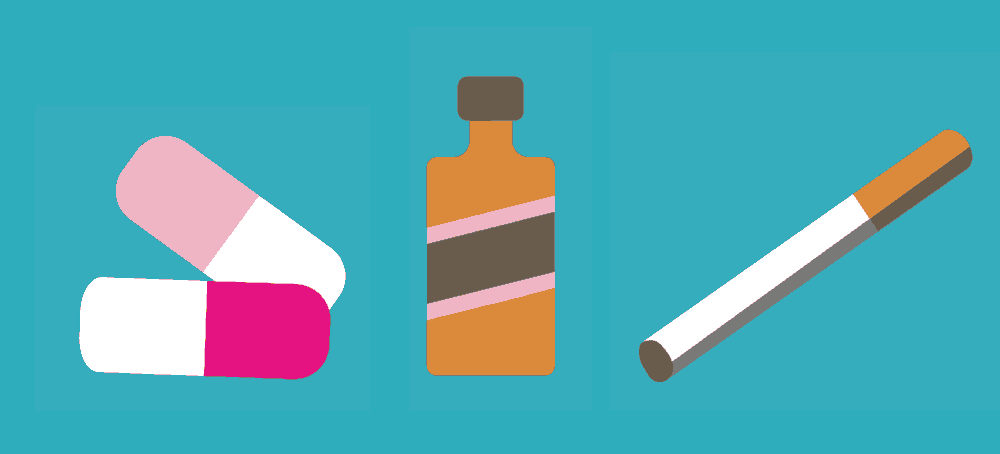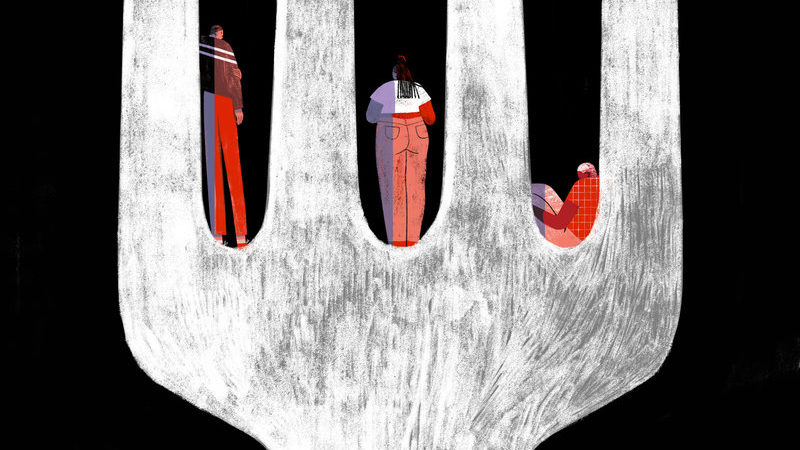To start, I would like to say I am not a doctor and did all this research online
TW: Eating Disorders, suicidal behaviors, substance abuse
If you or someone you know might, or has, an eating disorder call the hotline or a doctor.
(1-800-931-2237)
NEDA LINE
The stress and isolation of the COVID-19 era has unfortunately bred a significant rise in eating disorders. Recognizing the signs of eating disorders in yourself and your loved ones can be a challenge, but Mrs. Davis’s work with NEDA (National Eating Disorders Association) has brought hope and necessary guidance to the students at RHS.
Interview with Mrs. Davis:
Q: What caused you to be active in NEDA?
My interest in NEDA began when one of my children was diagnosed with an eating disorder. They provided resources for us, and I wanted to give back. I spent six months volunteering on their “Help Line” in Manhattan. I also trained to be a moderator of the Body Project, which helps young women dispel the negative messages of the media, and feel more comfortable and confident with themselves. I’ve brought this group to RHS, and have enjoyed the participation of our students and watching the change in their attitudes as we progress through the sessions.

Q: Do you have any sort of history with eating disorders?
A: NEDA is always looking for volunteers and advocates. Their website is nationaleatingdisorders.org and it’s filled with resources. We just participated in a virtual NEDA walk, and that’s something anyone can sign up for and attend! It’s very exciting when we gather in Foley Square and walk over the Brooklyn Bridge, but this year was virtual due to the pandemic. It was still uplifting and inspirational – and the monies raised will definitely make a difference to people suffering with eating disorders. The walk really illustrates the number of people affected by them – and always impacts me emotionally.
Q:What do you think should be done publicly/socially to lessen the rates of ED’s?
Personally, my involvement stems from my family members having eating disorders. They are in recovery now, but relapse is always a concern so the fight is forever. I want to make a difference in the hopes that others can avoid this devious disease. I’m very fortunate to be at Rutherford High School, where the administration and faculty support my mission. I’m grateful to so many of them for their support. Often eating disorders are formed prior to high school, and that’s where the awareness needs to begin. It might sound simple, but instituting and regularly reinforcing the importance of kindness from elementary school can go a long way. Cracking down on bullying and being more aware of students’ mental and physical well being is paramount. And, teaching and preaching that the diet and beauty industry are just in it for the money – and their messages shouldn’t be followed – is key!
…teaching and preaching that the diet and beauty industry are just in it for the money – and their messages shouldn’t be followed – is key!
Mrs. Davis ended the interview by saying that she is “always available to provide direction to anyone who might need the resources of NEDA” and that she would love to have people join the Body Project.
The Body Project:
A project that Mrs.Davis brought to RHS around 3 years ago.
She describes it,
The conceptual basis is that if girls and young women voluntarily argue against the societal appearance-ideal, this will result in a reduced subscription to the ideal. We gather for either 4 one hour sessions or 6 45 minute sessions – this fall it will be virtual…We do some simple writing exercises outside of the group, and then have discussions that help us to affirm that we are enough and the magazines and diet industry are just trying to make money by telling us “this is the way to look,” etc.
If this seems interesting to you, email Mrs. Davis!
More information on Eating Disorders
Overview and Statistics
It is important to know that eating disorders aren’t a lifestyle choice and the deadliest psychiatric disorder. They are very hard to notice as a mental health disorder because they can look healthy/normal and can easily say that they are going on a diet. Eating Disorders (ED’s) can be noticed by seeing if someone has disturbances in their eating habits, behaviors and the thoughts related to them. Their emotions and daily life are greatly impacted by their weight and appearance.

ED’s are typically lifelong as it is used typically as a coping mechanism for stressful situations or to gain control. However, this does not change the fact that people with ED’s tend to be at a higher risk for develop s*icidal thoughts and actions as well as substance abuse. Anyone can be affected by them; there is no set standard for those who can develop them, but they tend to be diagnosed more in women than men.
Those with pre-existing depression, anxiety, or substance abuse tend to develop eating disorders as well. 64% of 674 anorexics and bulimics had diagnosable anxiety. They also tend to run through family generations because of habits passed down as well as genetic patterns in their brains. Around 40% – 60% of people struggling have a family member with an eating disorder. In dysfunctional families, children tend to develop them as a coping mechanism. However it can be seen in all forms of stressful relationships with others, oneself, money, etc. Certain professions, such as ballet, and dieting are risk factors for developing them. Irregular hormone functions and nutritional deficiencies can also lead to people developing them. Many regions that have higher rates of ED’s have been touched by Western influence and the idea that being thin is beautiful, or that a certain body type is what everyone should have. The “college diet” is another example of them as well.
People who are a part of the LGBTQ+ community are also at risk for many reasons. Many gay, bi, or pan men tend to feel the need to be thin because of the media. Single mlm men tend to have restrictions on what they can eat (restrictive ED’s) while taken mlm men tend to have bulimia. Nonbinary people tend to also develop them because the media portrays them as very thin.
There have been models made to try and explain the complex nature of eating disorders. For example, the trisaritie model puts forth the idea that eating disorders stem from exposure to the media as well as peer and parental pressure. A simple idea to remember to try and understand is also a complex twist between nature and nurture in sufferers. Nature and nurture tend to fill the pot while a triggering factor spills it over (so, nature + nurture + trigger = Possible ED).

All of the disorders can have severe health complications and a worsening, or development, of other mental health problems. Growth and development can also be stunted as a result, their relationships also start to worsen or break off entirely as a result. They can develop substance abuse and possibly even die, (as a side note, many celebrities have died of anorexia nervosa because of heart failure).
Treatment involves psychotherapy, medical care and monitoring, nutritional counseling to help gain weight, as well as medication. Although complete recovery is possible, it is still incredibly hard to get to and maintain. However there is a large stigma surrounding them, they are often oversimplified or overgeneralized and misunderstood.
To help
Don’t add a heavy emphasis on weight or dieting. Educate yourself and others about how Eating Disorders are unhealthy, not at all a lifestyle, and deadly. Keep in mind that there are photo editing softwares and plastic surgery for all the “beautiful” people in Hollywood. Do your best to cultivate healthy body images for people of all kinds. Along with challenging beauty standards and the stigmatization of overweight people, women’s rights tends to lower the rates as well. Not over-sexulaizing or objectifying people will also lower the rates. Eating breakfast and/or eating as a family, or in a group, tends to help the people with eating disorders as well.
Talk to a doctor, call the hotline! Just be open about your, or their, struggles.
